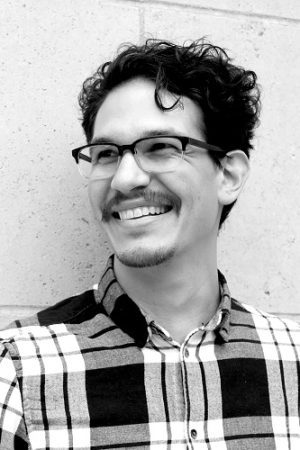Jonathan Dessi-Olive

Jonathan Dessi-Olive
Jonathan Dessi-Olive is a researcher, designer, and educator who joined the School of Architecture at UNC Charlotte in 2022. In his role as an assistant professor in building technology + design integration, Dessi-Olive will teach architecture design studios, structures, and construction research seminars that take a critical approach to technology. He is also the director and founder of the MycoMatters Lab, a design and research practice that develops novel applications of fungi-based materials in structural design, architectural acoustics, and sculpture. Through interdisciplinary collaborations with architects, artists, engineers, biologists, farmers, economists, and students, the Lab’s work contributes to the broad disciplinary areas of sustainable building technology, architectural acoustics, and computational design.
Dessi-Olive’s research has been published by the International Association of Shell and Spatial Structures (IASS), the Acoustical Society of America (ASA), the Symposium for Simulation in Architecture and Urban Design (SimAUD), and the Conference for Nonconventional Materials and Technologies (NOCMAT). His design and construction work has been exhibited in public venues such as the Venice Architecture Biennale, TEDxPenn, the Center for Architecture in New York City, Beach Museum of Art, and The University of Virginia.
Prior to joining UNC Charlotte, Dessi-Olive was an assistant professor at Kansas State University, and he was the inaugural Ventulett NEXT Fellow at the Georgia Institute of Technology School of Architecture from 2017-19. He earned a Master of Science (SMArchS) from the Massachusetts Institute of Technology in Design Computation, a Master of Architecture (MArch) from the University of Pennsylvania, and a Bachelor of Science in Architecture from the University of Minnesota.
EXPLORE HIS RECENT WORK
Strategies for Growing Large-Scale Mycelium Structures.
Fungi-based materials (myco-materials) have been celebrated and experimented with for their architectural and structural potential for over a decade. This paper describes research applied to assembly strategies for growing large building units and assembling them into efficiently formed wall prototypes.
Read more →
The Mycelium Project: Growing House Parts.
This project took place over the course of a 3-part AIA continuing education workshop series hosted by the Center for Architecture/AIA New York Custom Residential Architects Network. The online events explored the potential of fungi for the decarbonization of residential building components through a speculative design commission to renovate a conservatory space with custom parts made entirely out of myco-materials.
Read more →
A Simulation-Validated Shape Grammar for Architectural Acoustics.
Reciprocal 3-D acoustic plots are computationally simulated using a perfectly matched layer finite element method and inform how the interactions of invisible sound waves are impacted by visual design decisions. This paper presents the results of this framework with 3×3 arrays of diffusers and absorbers, resulting in the introduction of an aesthetic value Ē , incorporated with the diffusion coefficient, allowing for nuanced objective performative evaluation of these arrays.
Read more →